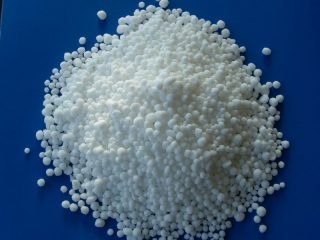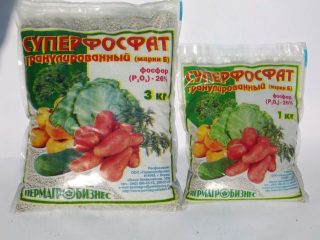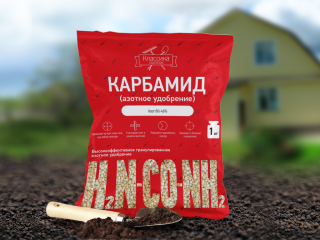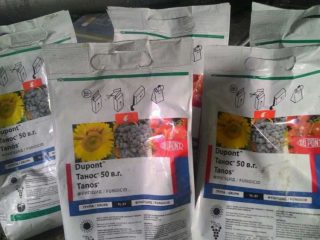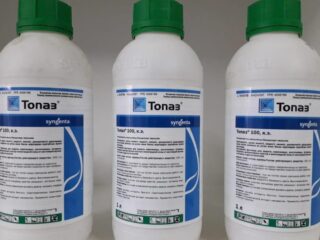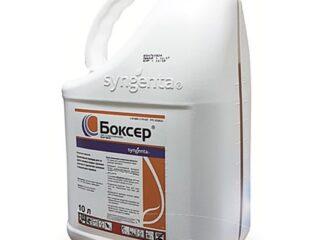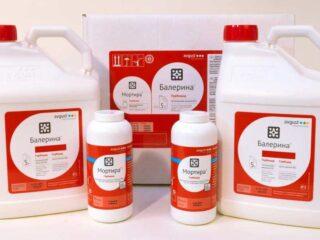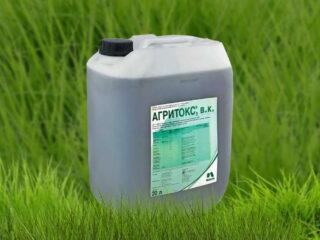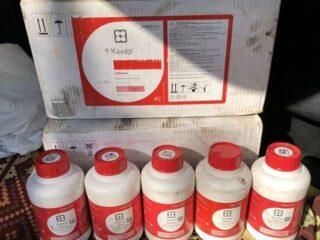Content
Tar soap against aphids allows you to get rid of pests on the day of treatment. The product repels insects with a specific tar smell. It forms a film on the leaves, under which the aphids suffocate and die. It can be used several times a season; 2-3 treatments are enough to get the desired effect.
Does tar soap help against aphids?
Tar soap contains fatty acids in the form of sodium salts, as well as palm oil, water and birch tar. It is this component that distinguishes it from ordinary soap.
The product ensures the formation of a film that literally binds pests and deprives them of air access. Soap is produced in solid and liquid form (concentrate). Packaged in plastic containers of different volumes, for example, 350 or 500 ml. It is permissible to store at temperatures from 7 to 40 degrees Celsius. Keep children out of reach and away from direct sunlight. The shelf life is three years from the date of production.
The product is used both by itself and in solutions with other components. Soap promotes better adhesion of liquid to the surface of the sheet. After treatment, the applied composition is well retained on the surface, which provides a relatively long protective effect.
Therefore, tar soap is used to spray plants against aphids and other pests. This is an effective and absolutely safe product that can be used to protect a wide variety of crops:
- vegetable;
- decorative;
- fruit and berry;
- floral;
- lawn grasses and others.
Spraying is carried out throughout the season, since there are no strict deadlines for treatment against aphids and other insects. It is allowed to treat both adult plants and seedlings.
How does tar soap work on aphids?
Soap is quite effective against aphids. The smell of tar is specific; even in small concentrations it repels many pests well. Often the result is noticeable after the first treatment.
Also, the protective effect of the product against aphids with tar soap is explained by the fact that after treatment it forms a film on the surface of the leaves. The pests located under it cannot leave the dangerous place and, in the absence of oxygen, begin to suffocate (asphyxia). Therefore, soap helps against aphids and other dangerous pests.
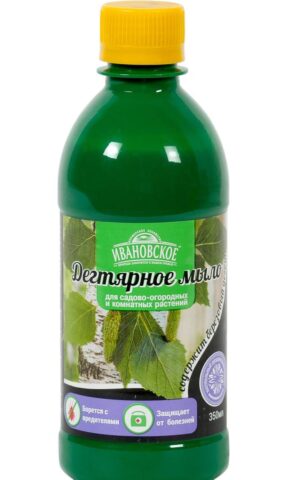
The product is produced in a convenient form of liquid concentrate.
Based on the type of effect on aphids, tar soap is classified as a contact insecticide. It penetrates the body through direct contact with the paws and integument of the body.
Recipes for solutions against aphids with tar soap
It is quite possible to defeat aphids with tar soap. For this, both a liquid product and bars weighing 100 g are used.The product allows you to cope not only with aphids, but also with other dangerous pests:
- thrips;
- scale insects;
- slobber;
- leafhoppers;
- herbivorous bugs.
The drug is also used to treat fungal infections:
- late blight;
- powdery mildew;
- rust;
- brown spot.
With ash
You can simply prepare a solution of pure soap in the amount of 100 g (1 bar) or 100 ml (liquid concentrate) per standard 10 liter bucket of water. This is a fairly effective remedy against aphids and other pests.
But a more effective option is to prepare an ash-soap solution based on the following components:
- wood ash – 3 cups (500-600 g);
- tar soap – 50 g;
- garlic – 2 heads;
- water – 10 l.
First, take wood ash and pour boiled water at normal room temperature into it. Then chop the garlic cloves and add them there. Rub the block and add shavings or pour in 50 ml of liquid concentrate. The mixture is left to infuse for several hours, filtered, poured into a spray bottle and begin spraying the plantings.
With tobacco
You can also dilute tar soap for aphids with tobacco dust. To do this, take 200 g of shag, 30 g of shavings or liquid concentrate and 30 g of wood ash. The sequence of preparation steps is as follows:
- Grind the tobacco leaves (you can immediately take shag instead).
- Pour them with 10 liters of water at room temperature and leave for a day to get an infusion.
- Then add soap and ash and mix thoroughly.
- Strain and immediately begin spraying.
With pepper
Hot chili peppers are good at repelling aphids and other insects. It contains caustic substances that destroy various pests. To prepare the solution, you need to take 5-7 pods, peel them, and remove the seeds.Then the pulp is crushed and poured with a bucket of water at room temperature.

An infusion of hot pepper pods helps to cope with aphids and other pests
Let it sit for a day, then strain. After this, add 50 g of shavings or 50 ml of liquid concentrate, mix thoroughly, pour into a sprayer and immediately begin processing.
With soda
Tar soap and baking soda (baking soda) help to get rid of aphids. To prepare the composition for aphids, take 2 tbsp. l. soda and 25 g of tar soap shavings. They are mixed and poured with a liter of warm water. After complete dissolution, processing begins. Baking soda enhances the alkaline environment of soap, making it more effective against aphids and other pests.
With tomato or potato tops
Tomato or potato tops are often used to treat aphids and other insects. When combined with tar soap, the herbal infusion gives the greatest effect. To prepare the product (for 10 liters of water) you need to take:
- freshly cut tops – 4 kg;
- soap – 50 g.
Algorithm for producing the composition:
- Chop the tops and place in a large bucket.
- Pour water at room temperature and let it brew for 4-5 hours.
- After this, put on the fire and bring to a boil.
- Let simmer over very low heat for half an hour.
- 5 minutes before the end of cooking, grate the soap or add 50 ml of concentrate from the bottle
- Turn off the heat and let cool to room temperature.
- Strain and bring to a total volume of 10 liters.
- Pour into a spray bottle and begin processing.
With ammonia
Also, for the prevention and destruction of aphids, treatment is carried out with tar soap (50 g) and pharmaceutical ammonia (50 ml). These components are diluted in a small volume of water and then brought to 10 liters.
You need to do this:
- Grate a bar of soap or use liquid concentrate.
- Dissolve the shavings in hot but not boiling water (60-70 degrees).
- Wait until the liquid cools down, then add ammonia.
- Stir, pour into a spray bottle and begin processing.
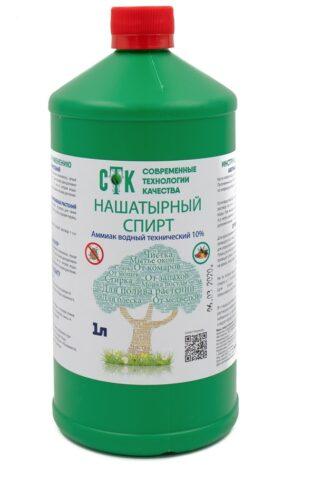
Ammonia also repels insects with a pungent odor
The liquid cannot be stored. It needs to be prepared in volumes that can realistically be consumed at one time.
How to treat plants against aphids with tar soap
For processing, a solution is prepared based on shavings of a solid piece. You can also take liquid tar soap for aphids and dissolve it in water, observing the proportions described above. The procedure is carried out only by foliar method, i.e. spraying the above-ground part of the plant - shoots, leaves, stem, buds.
All foliage needs to be treated. At the same time, it is recommended to touch not only damaged plants, but also healthy plantings. They do this to prevent the occurrence of diseases and pests. Many fungal infections only show symptoms after a few days. Therefore, it is impossible to say for sure whether a particular bush is healthy or not.
Spraying with tar soap against aphids is carried out throughout the season with an interval of 7-10 days. The product is safe for humans and plants. Therefore, treatments should be done until the pests are completely destroyed. As soon as the colony has disappeared, it is recommended to carry out another spraying after 2-3 days.
The processing technique depends on the height of the plants:
- Vegetables and indoor flowers can be treated with a regular spray bottle.
- To spray trees and tall, dense bushes against aphids, special sprayers with a portable 10-liter capacity are used.
- If you need to treat low plants or lawns, you can moisten a broom and shake off the drops from it with sharp movements to the maximum area.
Pros and cons of tar soap
Tar soap helps quite well against aphids and other pests. The product has several tangible benefits.
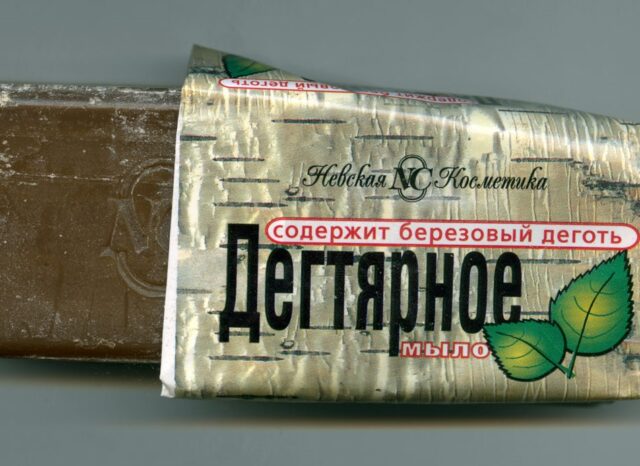
Tar soap is one of the most affordable insect repellents
Pros:
- completely natural composition;
- safety for humans, plants, animals;
- low price;
- easy to use;
- wide spectrum of action.
Minuses:
- short period of protective action;
- several treatments have to be carried out per season;
- after rain, the product is almost completely washed off from the plants.
Conclusion
Tar soap against aphids helps quite well at all stages. In this case, it is advisable to carry out the first treatment at the very beginning of summer in order to prevent a strong invasion. Subsequently, spraying is done several more times until the pests are completely destroyed.
Reviews about the use of tar soap
